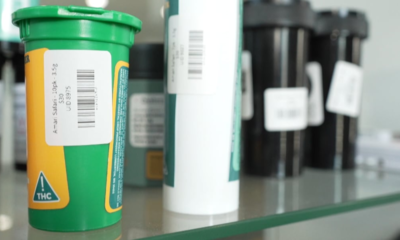
We’ve come a long way since marijuana was first decriminalized in Oregon in 1973. Here’s a state-by-state breakdown of laws pertaining to marijuana and psychedelic drugs.
Marijuana Legalization
(24): Alaska, Arizona, California, Colorado, Connecticut, Delaware, Illinois, Maine, Maryland, Massachusetts, Michigan, Minnesota, Missouri, Montana, Nevada, New Jersey, New Mexico, New York, Ohio, Oregon, Rhode Island, Vermont, Virginia, Washington (also Washington, DC)
Marijuana Decriminalization
(6): Hawaii, Mississippi, Nebraska, New Hampshire, North Carolina, North Dakota
Medical Marijuana Legalization
(39): Alabama, Alaska, Arizona, Arkansas, California, Colorado, Connecticut, Delaware, Florida, Hawaii, Illinois, Kentucky, Louisiana, Maine, Maryland, Massachusetts, Michigan, Minnesota, Mississippi, Missouri, Montana, Nebraska, Nevada, New Hampshire, New Jersey, New Mexico, New York, North Dakota, Ohio, Oklahoma, Oregon, Pennsylvania, Rhode Island, South Dakota, Utah, Vermont, Virginia, Washington, West Virginia (also, Washington, DC)
Medical Marijuana Legalization – CBD Oil Only
(10): Georgia, Indiana, Iowa, Kansas, North Carolina, South Carolina, Tennessee, Texas, Wisconsin, Wyoming
Hemp Legalization
Hemp is now federally legal. Only two states in the country – Idaho and Mississippi – do not allow cultivation of hemp for commercial, research or pilot programs.
Delta-8 and Delta-9 THC Prohibition
Derived from hemp, Delta-8 THC is illegal in the following states: Alaska, Arizona, California, Colorado, Delaware, Idaho, Iowa, Minnesota, MIssissippi, Montana, Nevada, New York, North Dakota, Oregon, Rhode Island, Utah, Vermont and Washington.
Cities That Have Decriminalized or Depenalized Marijuana
(52): Allentown, PA; Ann Arbor, MI; Athens, GA; Athens, OH; Atlanta, GA; Austin, TX; Bellaire, OH; Cincinnati, OH; Cleveland, OH; Cocoa Beach, FL; Columbia, MO; Columbus, OH; Dallas, TX; Dayton, OH; Daytona Beach, FL; Denton, TX; Eau Claire, WI; Elgin, TX; El Paso, TX; Fremont, OH; Harker Heights, TX; Harrisburg, PA; Kansas City, MO; Kenosha, WI; Killeee, TX; Lancaster, PA; Lawrence, KS; Logan, OH; Miami, FL; Milwaukee, WI; Monona, WI; Mount Pleasant, MI; New Orleans, LA; Newark, OH; Norwood, OH; New Orleans, LA; Oregon, OH; Orlando, FL; Philadelphia, PA; Pittsburgh, PA; Racine, WI; Roseville, OH; Saginaw, MI; San Marcos, TX; Savannah, GA; State College, PA; Tampa, FL; Toledo, OH; Tucsaloosa, AL; Wichita, KS; Windham, OH; York, PA
Cities That Have Made Marijuana Arrests the Lowest Depriority
(6): Eureka Springs, AR; Fayetteville, AR; Hailey; ID; Little Rock, AR; Louisville, KY; Tampa, FL
States That Have Decriminalized Entheogenic Plants (including Magic Mushrooms)
(3): Colorado, New Jersey*, New Mexico, Oregon,
*possessing an ounce or less of mushrooms is now a disorderly-persons offense
Cities That Have Decriminalized Entheogenic Plants (including Magic Mushrooms)
(9): Ann Arbor, MI; Cambridge, MA; Denver, CO; Oakland, CA; San Francisco, CA; Santa Cruz, CA; Somerville, MA; Vancouver, BC; Washington, DC
States That Have Decriminalized All Drugs
(1): Oregon*
*this law was repealed in 2024
Countries That Have Legalized Marijuana
(9): Canada, Georgia, Germany, Luxemburg, Malta, Mexico, South Africa Thailand, Uruguay
Countries That Have Decriminalized All Drugs
State-by-State
Alabama: med
Alaska: rec, med
Arizona: rec, med
Arkansas: med
California: rec, med,
Colorado: rec, med, psychedelics
Connecticut: rec, med
Delaware: rec, med
Florida: med
Georgia: CBD
Hawaii: decrim, med, hemp
Idaho: none
Illinois: rec, med
Indiana: CBD
Iowa: CBD
Kansas: CBD
Kentucky: med
Louisiana: med
Maine: rec, med
Maryland: rec, med
Massachusetts: rec, med
Michigan: rec, med
Minnesota: rec med
Mississippi: decrim, med
Missouri: rec, med
Montana: rec, med
Nebraska: decrim, med
Nevada: rec, med
New Hampshire: decrim, med
New Jersey: rec, med
New Mexico: rec, med
New York: rec med
North Carolina: decrim, CBD
North Dakota: decrim, med
Ohio: rec, med
Oklahoma: med
Oregon: rec, med, drug decrim, psychedelics
Pennsylvania: med
Rhode Island: rec, med
South Carolina: CBD
South Dakota: med
Tennessee: CBD
Texas: CBD
Utah: med
Vermont: rec, med
Virginia: rec, med
Washington: rec, med
West Virginia: med
Wisconsin: CBD
Wyoming: CBD
Washington, DC: rec, med
Legend: Rec = recreational or adult use; Med = medical
For specific information about each state, go here. For a map, go here.































































